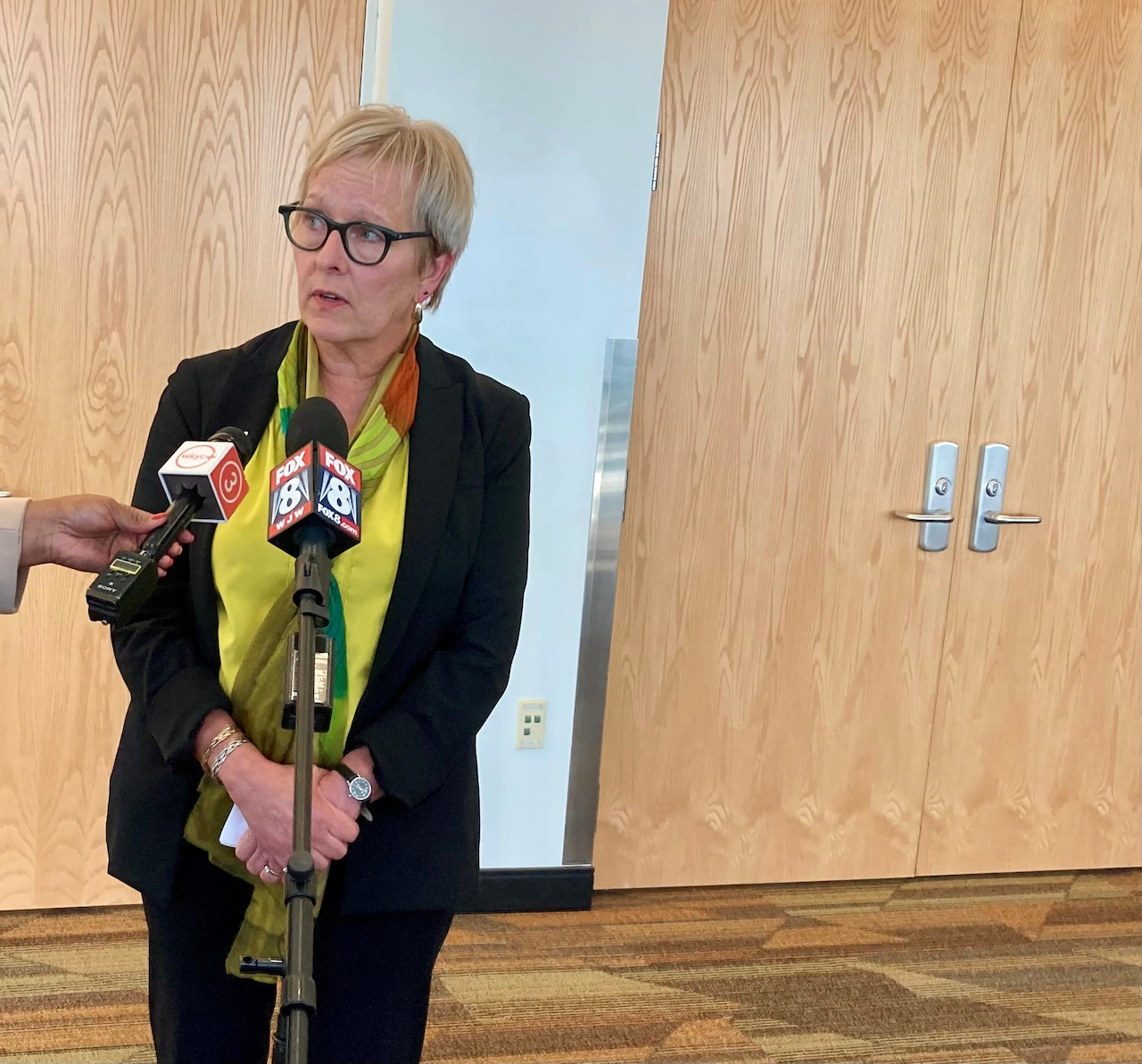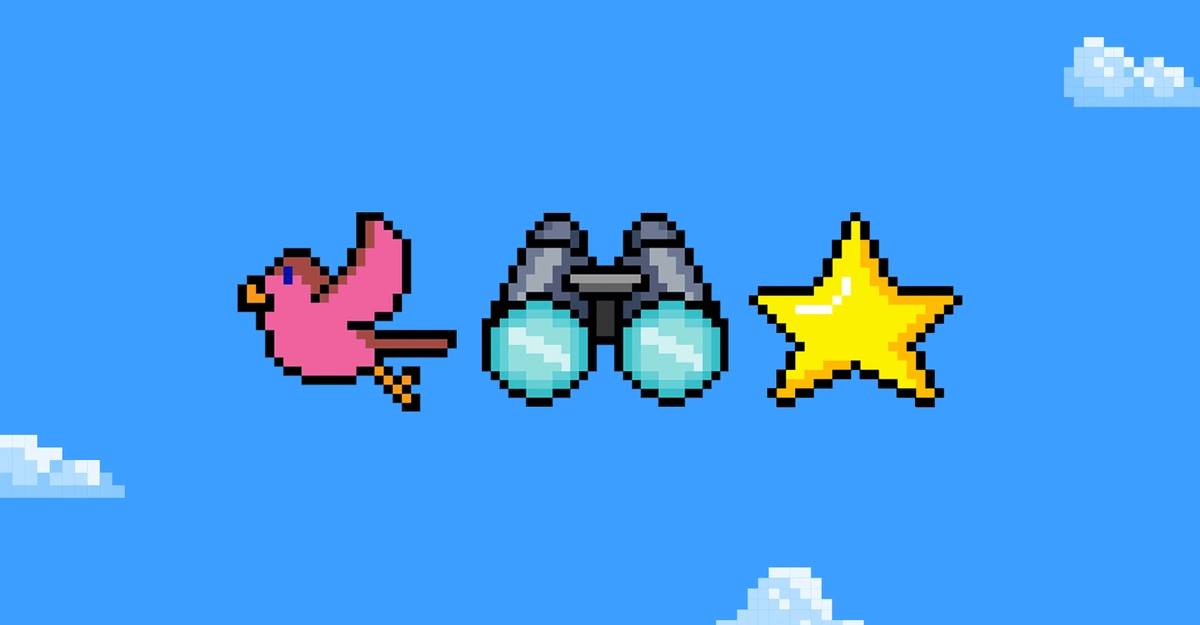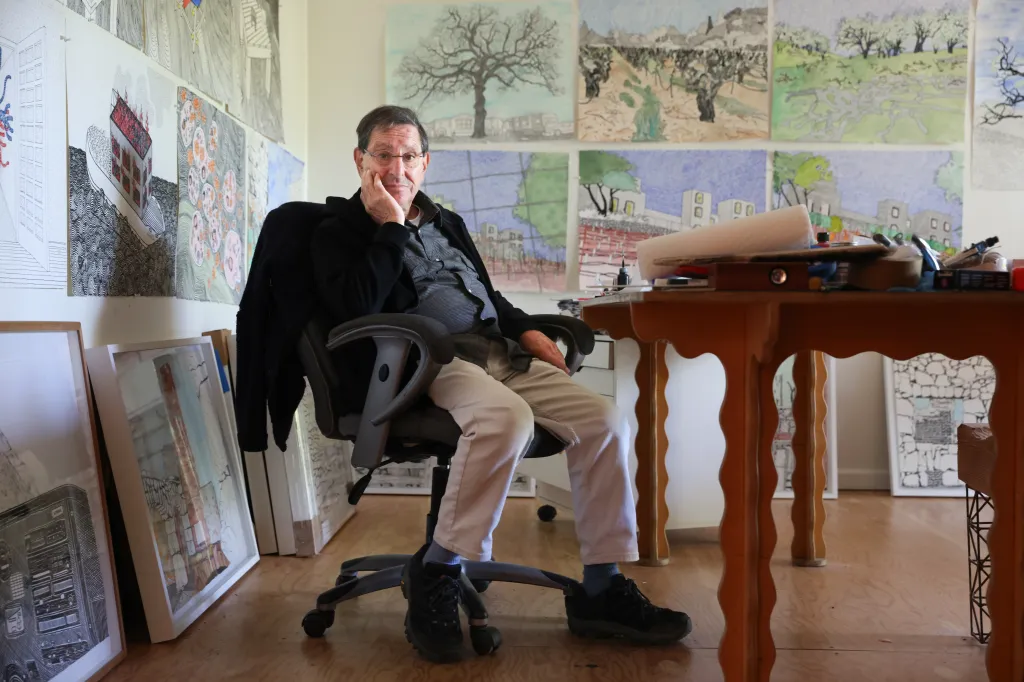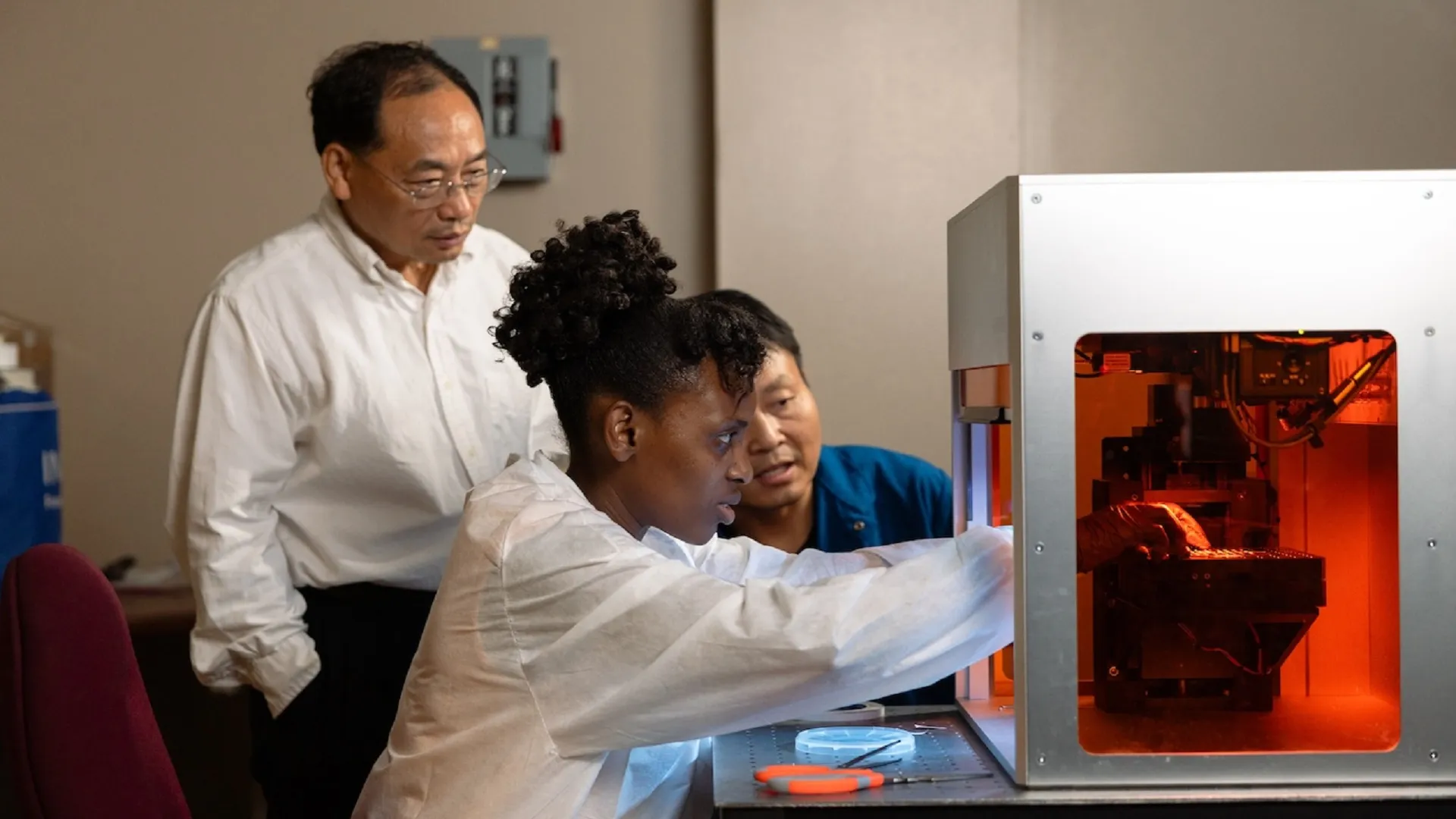Copyright Slate
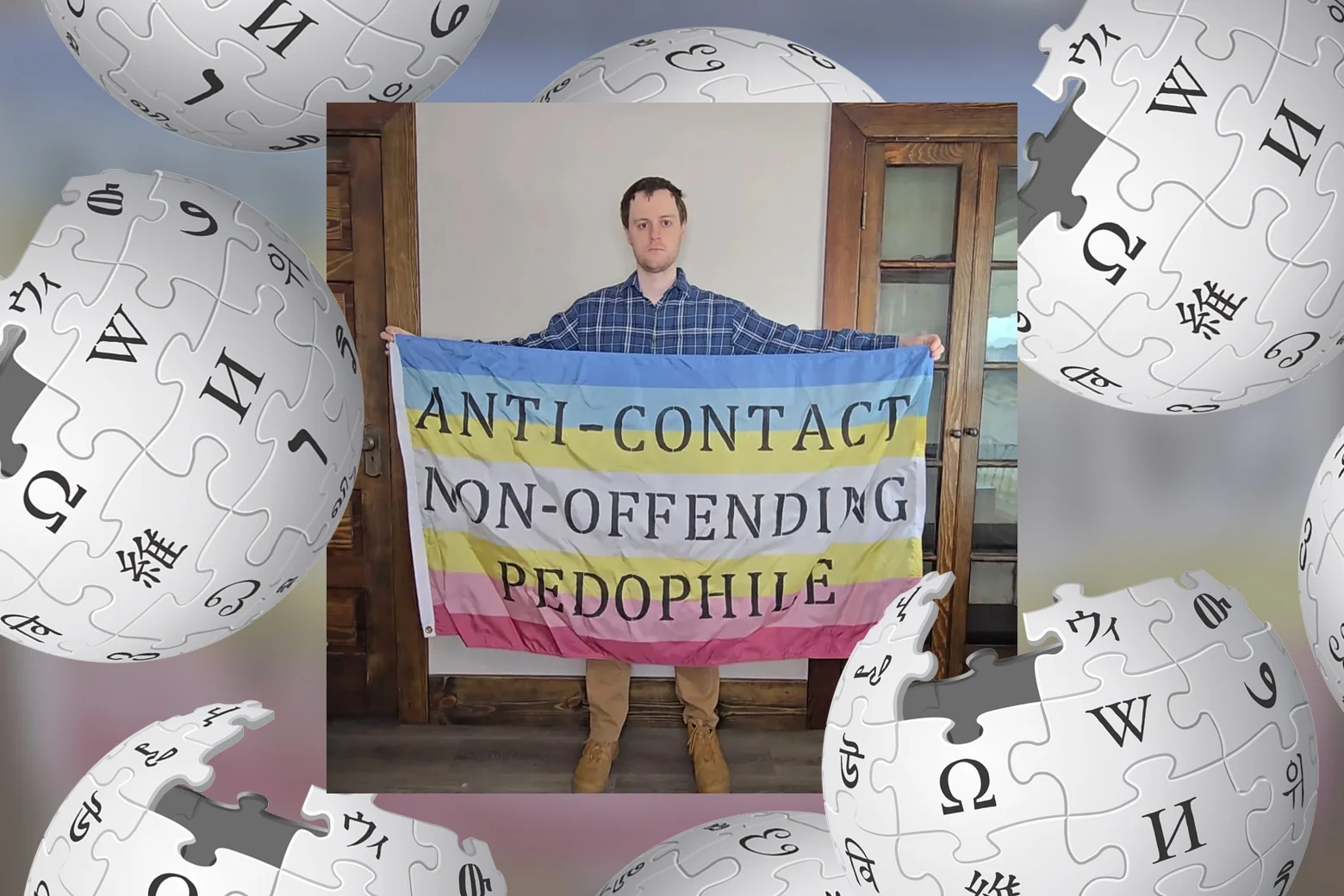
Sign up for the Slatest to get the most insightful analysis, criticism, and advice out there, delivered to your inbox daily. When a man suddenly stormed the stage during the keynote speech at last weekend’s Wikipedia conference in New York, the audience of well over 100 volunteer Wikipedia editors was confused. Some thought the man was protesting the website’s nonprofit parent organization because the disruption came in the middle of remarks by Wikimedia Foundation CEO Maryana Iskander. Others wondered if this might be a bizarre but potentially harmless display of performance art. “We have so many haters on Wikipedia,” Molly Stark Dean, a Wikipedian and conference organizer who was sitting in the front row, told Slate. “I was like, Which corner of the internet is this guy from?” Then they saw his gun. According to several editors present at this year’s WikiConference North America, the next few moments felt both unnervingly long and remarkably fast. The armed man wore a sign around his neck that read “Anti-Contact Non-Offending Pedophile” and had a pink-yellow-and-white-striped flag draped over his shoulders that is used by individuals who call themselves “minor-attracted persons.” Speaking to the attendees, he said he intended to end his life to protest what he called Wikipedia’s “Don’t Ask, Don’t Tell” policy, referring to the site’s rule that editors who “identify themselves as pedophiles, will be blocked and banned indefinitely.” The man waved the gun—at his head, at the ceiling—until a man sporting a blue “Wikipedia Editor” baseball cap and a prominent beard wrapped him in a bear hug from behind. A second volunteer rushed the stage, grabbing the man’s arm and prying the weapon from his fingers. A senior law enforcement official later confirmed that the gun was loaded. Richard Knipel and Andrew Lih, the two men who averted the potential bloodshed, weren’t cops or professional security guards. Until Friday, they were known for their many volunteer contributions to Wikipedia and Wikimedia Commons, where they edit as users Pharos and Fuzheado, respectively. After the gunman was taken into custody by the New York Police Department, the two contributors were praised widely within the Wikipedia community—a group that, despite frequent claims to the contrary from figures like Elon Musk, spans the political spectrum. “Congratulations are due to Richard Knipel and Andrew Lih,” Yaron Koren, a longtime Wikimedian and political conservative, posted on Facebook. “Their actions showed courage, quick thinking and empathy.” Annie Rauwerda, the creator behind the popular @depthsofwikipedia social media accounts and a conference speaker the next day, posted that the volunteers were “heroes!” “Bold action and bravery for the common good is literally classic behavior of Wikipedia mods,” she wrote on Bluesky. Rauwerda also credited Jake Orlowitz, another long-standing editor, who rushed to the stage and talked the guy down before he was taken into police custody, offering what Orlowitz described as “mental-health first aid.” No question: The men who stopped the tragedy deserve every Wiki barnstar they’ve received. Yet the incident also highlighted broader concerns about safety for Wikipedia’s volunteer editing community. As UMass Amherst researcher Ryan McGrady noted on Bluesky: “The public does not understand how likely Wikipedians are to endure threats, harassment, and trauma for the crime of summarizing what other people write.” Friday’s incident wasn’t the first reminder that Wikipedia editing can potentially be dangerous. The website has an article titled “List of people imprisoned for editing Wikipedia,” which includes a Saudi Arabian volunteer sentenced to 32 years in prison for edits deemed “critical” of the government. A Belarusian editor was detained under the country’s censorship laws requiring citizens to describe Russia’s invasion of Ukraine as a “special military operation.” Across the globe, editors deal with harassment, lawsuits, and imprisonment for their work. This stark reality has inspired a meme: “Editing Wikipedia Is Not a Crime.” Oscar Costero, a Venezuelan Wikipedia editor who spoke at the conference on Sunday, described how the authoritarian government tightened its control of information in his country, beginning with the firing of professors and continuing with the closing of newspapers and TV stations. “Then they came for the Wikipedians,” he said. Costero himself became a target, facing legal threats and a doxing campaign that revealed his personal information, branded him an electronic extortionist, and painted Wikipedia’s volunteer editors as enemies of the people. In the U.S., the anti-Wikipedia rhetoric has also escalated. After Friday’s incident, some commentators on social media smeared Wikipedia editors as “friends” of the self-identified pedophile, even though his Wikipedia account had been blocked back in February. According to witnesses, the armed man was not wearing his sign and flag when he entered the venue, instead producing them later from his bag. Some online voices suggested that the volunteers should have let him go through with the threat rather than intervene, likening this intercession to an editor’s changing an entry’s tense from is to was. Others applauded the choice to first disarm then deliver the individual to law enforcement, where he could hopefully receive mental health support. “Imagine: ‘wokepedia’ acting as decent, alert, brave, community minded citizens. What’s next?” posted Richard Cortado, a Portland writer, invoking an insult Musk has often used to disparage the site. Scholars say the recent attacks on Wikipedia differ from earlier critiques. As University of Washington graduate student Zarine Kharazian has written, in prior years the discussion focused on the content of the site. Commentators framed Wikipedia as a battlefield of ideas, where users engaged in back-and-forth editing. More recently, the trend has been to make Wikipedia the target of attack, aiming to denigrate the site’s credibility without good reason or claim that it is controlled by a secretive cabal (instead of a cohort of thousands of volunteers that anyone can join). Hostility toward its volunteers has seeped into mainstream politics. Following the assassination of Charlie Kirk, Utah Sen. Mike Lee posted on X that Wikipedia editors have “gone out of their way to put the ‘wicked’ in Wikipedia.” Meanwhile, Tucker Carlson devoted nearly an entire 90-minute podcast episode to smearing the site, telling his audience, “There’s nothing more corrupt.” From what I saw personally at WikiConference in New York, as well as in my prior reporting of similar events, the majority of Wikipedia editors are people with a nerdy disposition and a sincere desire to compile and summarize accurate free knowledge for the common good. There are some disturbing exceptions to this general profile, to be sure, but for the most part, these editors do not fit the demonized caricature presented by the website’s loudest critics. (Disclosure: Like other participants, my attendance was subsidized in part by the Wikimedia Foundation.) The Wikipedia community shows its values in different ways: through the public courage of Knipel and Lih, and through quieter innovations like those offered by users like Bremps, who is working on a tool to feature an article most in need of improvement on Wikipedia’s main page. Of course, Wikipedians are human, and the harassment many of them receive can take its toll. “I go to therapy only for Wikipedia-related things,” Lane Rasberry, the Wikimedian in residence at the University of Virginia’s School of Data Science, told the conference. Every week, Rasberry tells his therapist about the latest threats and hostile messages he and fellow volunteers have received for Wikipedia work. Talking it through with another person provides some relief, he said, but “the harassment is still there. It’s still real.” Members of the Wikipedia editing community say the recent wave of hostility feels less like a good-faith debate over content and more like an initiative to hurt them personally or professionally. Earlier this year, the Heritage Foundation outlined plans to “identify and target” Wikipedia editors it accused of antisemitism. Jamie Flood, a former employee at the National Agricultural Library whose position was abruptly cut by DOGE earlier this year, told the conference that her own approach to training new editors has shifted. She once presented anonymity as optional, but now she strongly advises Wikipedia newcomers to edit under a pseudonym for their own protection. The conference was organized by Wikimedia New York City, with financial support from the Wikimedia Foundation. In the wake of Friday’s incident, editors advised the foundation to revisit its safety protocols. Looming over those conversations was the September shooting of Kirk, a reminder of how dangerous these large in-person gatherings can be, especially for individuals and organizations embroiled in the culture wars. “With all the $2 donations that pour into Wikipedia, they [the foundation] should probably have invested a bit more in security,” one Wikipedian, who asked to remain anonymous, told Slate. Wikipedia editors are not high-profile influencers with any sort of private protection, which makes common security measures like bag checks all the more necessary. A broader theme that emerged at the conference was a sense that editors do not feel adequately heard by foundation staff, whether on questions of who sits on the board of trustees or on questions of how the organization allocates financial resources. A few questioned whether the Wikimedia Foundation was taking threats seriously enough when they were raised by the site’s volunteer administrators and functionaries. In conversations with the editors about foundation leadership, the word complacent came up repeatedly. With Iskander, its CEO, set to depart early next year, many said they hoped her successor would improve communications, legal support, and trust-and-safety functions, areas that fall clearly within the organization’s scope. At the conference, attendees could choose stickers—green, yellow, or red—to indicate their comfort with being photographed. By my count, roughly half opted for the more cautious approach, hoping to avoid potential doxing. Concerns about personal safety surfaced even before the event began. Several editors traveling from abroad told me they worried about crossing the U.S. border, citing incidents such as the lengthy detention of Canadian Jasmine Mooney. Some said they had taken precautions like logging out of Wikipedia or deleting apps such as Discord because phones are routinely searched by border officials during this administration. As Wikipedia confronts increased hostility, some argue that it’s important to expand the site’s volunteer community. “Wikipedia is where facts go to live. Not perfect, but it’s better than anything humanity has ever done,” said Craig Newmark, the Craigslist founder and philanthropist, during Saturday’s session. He stressed the need for more editors from outside major hubs like New York and California, and talked about the new Wikicurious series, funded by Craig Newmark Philanthropies and organized by Wikimedia NYC. These Wikipedia training events have already been held in Austin, Charlotte, Dallas, and Miami, with more on the way. The goal, Newmark said, is to recruit new editors from across the country who may have different perspectives. During Sunday’s panel, Rasberry, the U of Virginia’s Wikimedian in residence, raised concerns about the House Oversight Committee’s proposal to investigate academics who upload research from their institutions to Wikipedia. “I don’t have anything to do with politics,” he said. “I’m just trying to take very conventional science information and put it up on Wikipedia.” Given the fear and heavy conversation following Friday’s events, it is perhaps easy to forget that the conference also had its moments of Wiki-joy. An attendee was “liveskying” the event, since livetweeting doesn’t feel right in the era of X. One session showcased Wiki-powered games, including a silly-but-brilliant example in which players are tasked with making their faces match the subjects of famously pensive portraits, like that of Empress Eugénie. And Rauwerda, of Depths of Wikipedia fame, kept the humor alive by spotlighting one of her favorite oddball articles: the Wikipedia page for a man literally named Bum Farto. While the weekend had its bright spots, the incident obviously loomed over the gathering, and one of the most sobering sessions came from McGrady, the UMass Amherst fellow. He reminded the audience that the history of encyclopedias has always involved conflict with different types of power. Contributors to Diderot’s Encyclopédie were jailed for defying the Catholic Church. In the Soviet Union, encyclopedia editors risked prison or execution if they failed to toe the ideological line. Against that backdrop, McGrady argued, Wikipedia has long been an outlier. The crowdsourced free encyclopedia was unusual in history in that it never required permission from investors, state officials, priests, or kings. But that doesn’t mean that it’s beyond their reach. “Because Wikipedia wasn’t required to go to power for permission,” he said, “now we’re in the era where power has come to Wikipedia.”
